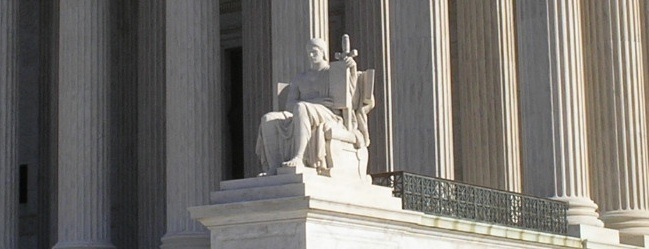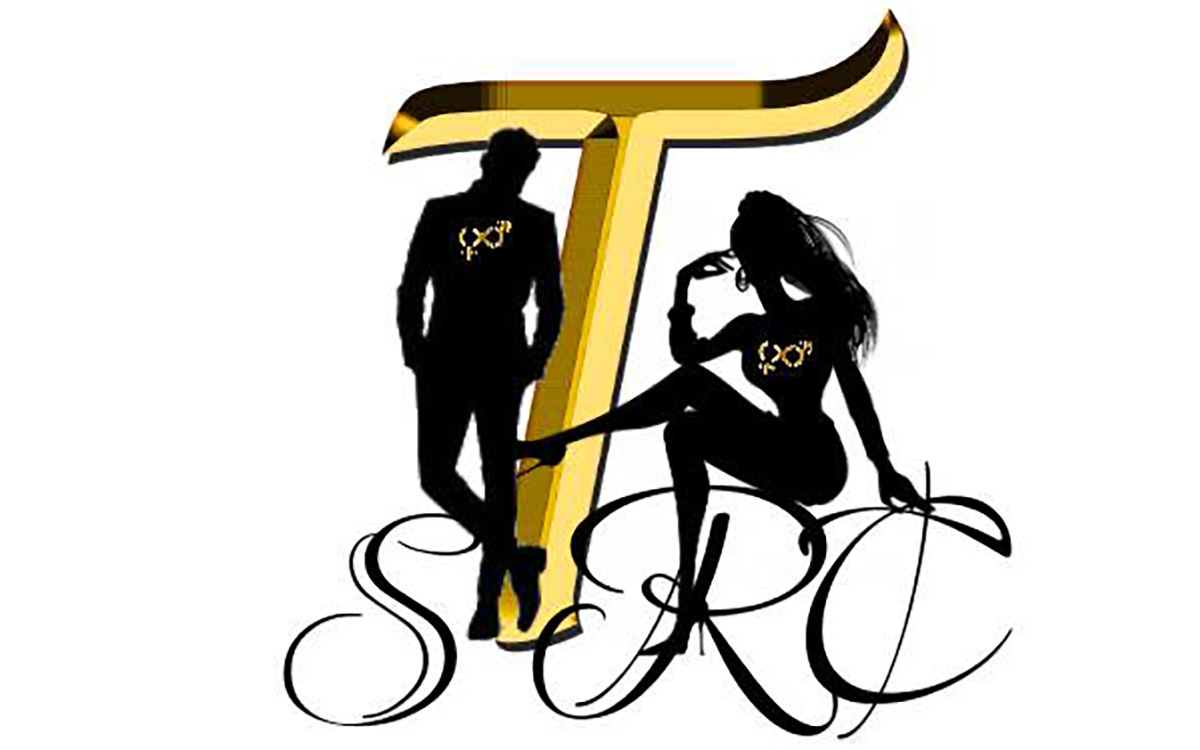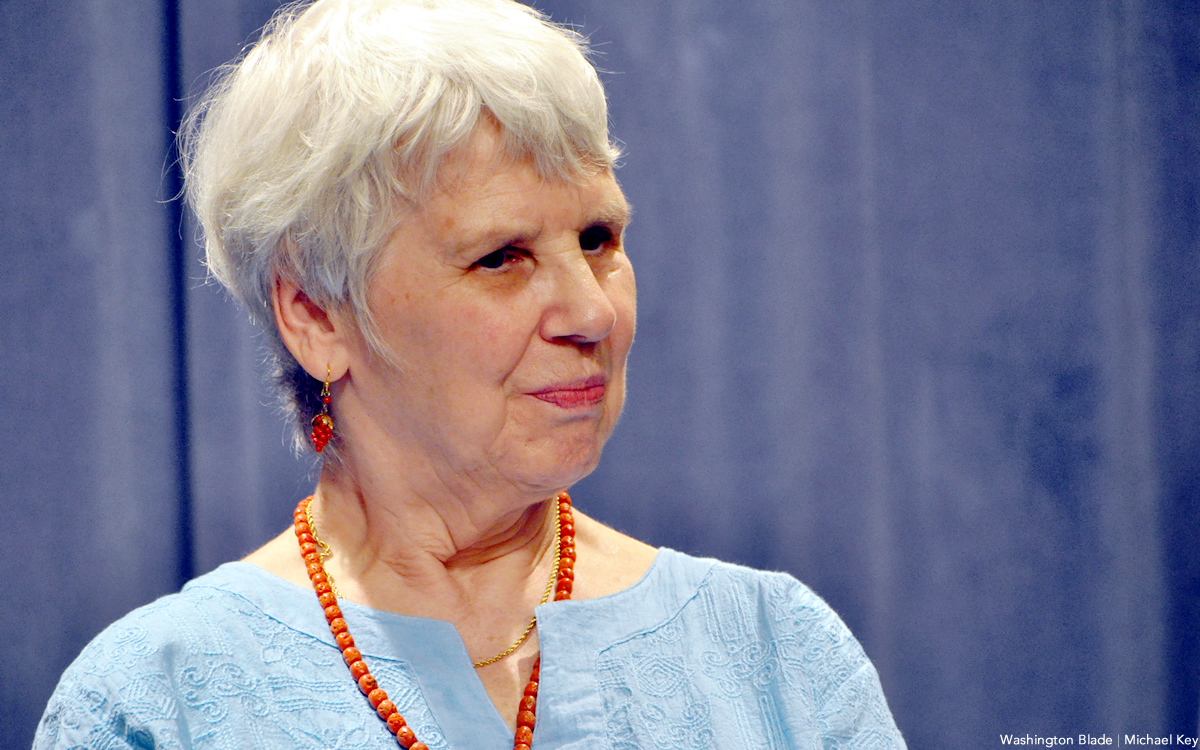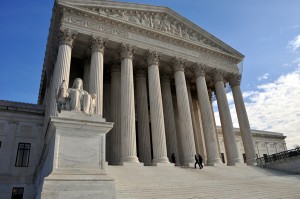Local
Supreme Court rejects D.C. marriage challenge
Action ends effort to force ballot measure

The U.S. Supreme Court issued an order today denying a request by a local minister to consider a case seeking to force the District of Columbia to allow voters to decide whether to repeal the city’s same-sex marriage law.
The order, which did not include any statement or opinion, ends the effort by Bishop Harry Jackson and other local opponents of same-sex marriage to go through the courts to impose a ballot measure calling for overturning the Religious Freedom and Civil Marriage Equality Amendment Act of 2009, which legalized same-sex marriage in the District.
None of the Supreme Court’s nine justices issued a dissent in their unanimous determination not to take the case.
“We are pleased that the Supreme Court turned down Bishop Jackson’s request for review of the Court of Appeals decision on marriage equality,” said Peter Rosenstein, president of the Campaign for All D.C. Families, the local group that campaigned for passage of the marriage equality law.
“This confirms our belief that what the D.C. Council did is both legal and just,” he said. “Equality will not be denied.”
Rosenstein was referring to a decision last October by the D.C. Court of Appeals that upheld an earlier ruling by the city’s Board of Elections and Ethics to reject a voter initiative proposed by Jackson and other same-sex marriage opponents calling for repealing the marriage equality law.
In the case known as Jackson v. the D.C. Board of Elections and Ethics, Jackson sought to force the city to hold a voter initiative that, if approved, would repeal the same-sex marriage law and replace it with a new law defining marriage in the District as a union only between a man and a woman.
The Court of Appeals decision stated that D.C. City Council acted within its authority under the city’s congressionally mandated Home Rule Charter when it imposed certain restrictions more than 30 years ago on the types of initiatives and referenda that could be placed on the ballot.
Among the restrictions adopted then was a ban on ballot measures that, if approved by voters, violate the non-discrimination provisions of the D.C. Human Rights Act. The act, among other things, bans discrimination based on sexual orientation.
Jackson and a team of lawyers representing him argued that Council violated the Home Rule Charter by adopting the ballot measure restrictions.
The Supreme Court today rejected Jackson’s request for a Petition for a Writ of Certiorari, which asked the court to hear the case to enable Jackson to appeal the ruling of the D.C. Court of Appeals. By denying that request, the Supreme Court allowed the Court of Appeals decision to permanently remain in effect.
“Today’s action by the Supreme Court makes abundantly clear that D.C.’s human rights protections are strong enough to withstand the hateful efforts by outside anti-LGBT groups to put people’s basic civil rights on the ballot,” said Joe Solmonese, president of Human Rights Campaign.
“For almost two years, the National Organization for Marriage and the Alliance Defense Fund, along with Bishop Harry Jackson, have fought a losing battle to shamelessly harm gay and lesbian couples in D.C. who seek nothing more than to share in the rights and responsibilities of marriage,” Solmonese said.
According to the Supreme Court’s public docket, the nine justices deliberated over whether to hear the Jackson case in a private conference held last Friday. Under longstanding court rules, the justices usually announce a decision on whether to accept or reject a case on the next business day following such a conference.
With the Supreme Court denying Jackson’s court challenge to the same-sex marriage law, marriage equality opponents are expected to take their fight back to Congress by resuming earlier requests for Congress to either overturn the D.C. marriage law or to impose a new law forcing the city hold a ballot measure to allow voters to decide the issue.
D.C. Council member Phil Mendelson (D-At-Large), who chairs the committee that shepherded the same-sex marriage law through the Council in 2009, said city voters have demonstrated through the city’s 2010 primary and general election that the marriage law was not a pressing issue for them.
He noted that despite promises by same-sex marriage opponents to work for the defeat of all Council members who voted for the marriage law, just a few candidates opposing the law surfaced in the elections and all of them lost by lopsided margins.
“They’ve lost in the courts, they lost overwhelmingly in the Council 12 to 1 [when the marriage bill came up for a vote in December 2009], and they lost at the ballot box,” he said. “Now they’ve lost their last chance, their last gasp in the judicial system.”
Jackson couldn’t be immediately reach for comment.
Rev. Anthony Evans, a D.C. minister who is working with Jackson to overturn the D.C. same-sex marriage law, called the Supreme Court’s refusal to hear the Jackson case “a travesty of justice.”
“This law was forced down the church’s throat and what the Supreme Court has set up is the greatest civil war between the church and the gay community,” Evans said. “And let me just state for the record, we don’t want that fight. We love our gay brothers and sisters. But if the Supreme Court is not going to acknowledge the fact that we have a right as religious people to have a say-so in the framework of religious ethics for our culture and society, then we reject the Supreme Court on this issue.”
Supporters of the same-sex marriage law have noted that large numbers of local religious leaders from all denominations, including black churches, came out in support of the law. Many have begun peforming same-sex marriages.
Evans, an official with the D.C.-based National Black Church Initiative, said local same-sex marriage opponents have began discussions with “our Republican friends” in Congress to take steps to challenge the D.C. marriage law. He declined to disclose further details but said he and others opposed to the marriage law lobbied GOP leaders on the Hill to strip congressional delegate Eleanor Holmes Norton (D-D.C.) of her voting privileges on the House floor.
Since Republicans took control of the House earlier this month, GOP leaders revoked Norton’s limited floor voting privileges that Democrats gave her when they took control of the House in 2007. House GOP leaders also revoked the limited voting privileges for delegates representing U.S. territories and Puerto Rico.
“[O]ur first action was to make sure that Eleanor didn’t get a vote as punishment for her wholehearted support for same-sex marriage in this city and also for her to ignore the black religious community,” Evans said. “There is a consequence to her actions. That was one of them.”
Norton, reached at her office late Wednesday, disputed Evans’ claim that same-sex marriage opponents played any role in her loss of House voting privileges.
Norton was referring to House Republican leaders’ decision to strip her of voting privileges when they gained control of the House in 1995. Democrats restored her voting privileges when they regained control of the House in 2007.
“But in any case, shame on any resident who wants the District of Columbia not to have a vote,” she said.
Norton said she expected some members of Congress to attempt to overturn the city’s same-sex marriage law through legislation, although she was hopeful that Democrats and moderate Republicans would join forces to defeat such legislation.
“I can tell you that I’ve had a good conversation with an important Republican who’s not interested,” she said, referring to efforts to overturn the D.C. marriage law. “That doesn’t mean that won’t happen. But there are Republicans here who would not like to get all mixed up with social issues.”
Virginia
Norfolk transgender resource center vandalized
Anti-trans graffiti spraypainted onto Southeastern Transgender Resource Center’s windows

The Norfolk Police Department is investigating the vandalism of a transgender resource center’s building.
Tarena Williams, founder of the Southeastern Transgender Resource Center, told WAVY that someone spraypainted anti-trans graffiti on the windows of her organization’s offices on Sunday or Monday morning. Williams told the Hampton Roads television station that seeing the messages was like “walking into hell.”
“I opened up STRC, even the Lamina House,” she told WAVY. “I opened up that to get away from those types of words. This is a place you can come to get away from that, but to see that sprayed over the window. It’s kind of like you are walking into hell. … To be honest, I was like in shock.”
Authorities are investigating the vandalism.
West Virginia
Appeals court strikes down W.Va. transgender athlete ban
Ruling finds law violates students’ constitutional rights, Title IX

BY LORI KERSEY | The 4th U.S. Circuit Court of Appeals has struck down West Virginia’s ban on transgender athletes, finding the law violates trans students’ rights under the Equal Protection Clause of the constitution and Title IX, a federal civil rights law prohibiting discrimination based on sex in education programs.
The case, B.P.J. vs. the West Virginia Board of Education, was filed in May 2021 on behalf of Becky Pepper-Jackson, a 13-year-old trans middle school student and track athlete who would be barred from participating if the ban is upheld. Pepper-Jackson is represented by the American Civil Liberties Union, the American Civil Liberties Union of West Virginia and Lambda Legal.
In April 2021, West Virginia Gov. Jim Justice signed into law a bill prohibiting trans women and girls in the state from participating in sports that align with their gender identity. The U.S. Court of Appeals in February 2023 blocked the state from removing Pepper-Jackson from her school’s track and field team as legal advocates appealed a lower court’s ruling upholding the ban.
In Tuesday’s ruling, Judge Toby Heytens wrote that offering Pepper-Jackson the “choice” between not participating in sports and participating only on boys teams is not a real choice.
“The defendants cannot expect that B.P.J. will countermand her social transition, her medical treatment, and all the work she has done with her schools, teachers and coaches for nearly half her life by introducing herself to teammates, coaches and even opponents as a boy,” the judge wrote.
“By participating on boys teams, B.P.J. would be sharing the field with boys who are larger, stronger, and faster than her because of the elevated levels of circulating testosterone she lacks,” he wrote. “The Act thus exposes B.P.J. to the very harms Title IX is meant to prevent by effectively ‘exclud[ing]’ her from ‘participation in’ all non-coed sports entirely.”
In a statement Tuesday, Joshua Block, senior staff attorney for the ACLU’s LGBTQ and HIV Project, called the court’s ruling “a tremendous victory for our client, transgender West Virginians and the freedom of all youth to play as who they are.”
“It also continues a string of federal courts ruling against bans on the participation of transgender athletes and in favor of their equal participation as the gender they know themselves to be,” Block wrote. “This case is fundamentally about the equality of transgender youth in our schools and our communities and we’re thankful the 4th Circuit agreed.”
“We hope today’s ruling sends a message of hope to the trans youth of West Virginia,” Aubrey Sparks, legal director of the ACLU of West Virginia, said in the statement. “And a message of warning to politicians who continue to dehumanize this vulnerable population.”
West Virginia is one of 21 states that have banned trans student-athletes over the last three years, according to the ACLU.
In a statement Tuesday, West Virginia Attorney General Patrick Morrisey vowed to defend the ban and said he is “deeply disappointed” in the decision.
“The Save Women’s Sports Act is ‘constitutionally permissible’ and the law complies with Title IX,” Morrisey said. “I will keep fighting to safeguard Title IX. We must keep working to protect women’s sports so that women’s safety is secured and girls have a truly fair playing field. We know the law is correct and will use every available tool to defend it.”
******************************************************************************************

Lori Kersey is a reporter with a decade of experience reporting in West Virginia. She covers state government for West Virginia Watch.
******************************************************************************************
The preceding article was previously published by the West Virginia Watch and is republished with permission.
Nonprofit, nonpartisan, independent journalism not hidden behind a paywall. Mountaineers are always free, and so is West Virginia Watch.
West Virginia Watch is part of States Newsroom, the nation’s largest state-focused nonprofit news organization.
District of Columbia
Reenactment of first gay rights picket at White House set for April 17
Event marks 59th anniversary of historic push for gay rights in nation’s capital

D.C.’s Rainbow History Project announced it will hold a reenactment on Wednesday, April 17, of the historic first protest for gay rights in the form of a picket line in front of the White House that took place on that same day in 1965.
In a statement released last week, Rainbow History Project says the reenactment will mark the 59th anniversary of an event that is credited with bringing attention for the first time to the federal government’s longstanding discrimination against a minority group referred to then as homosexuals or gays and lesbians.
The statement notes that the 1965 event was organized by the Mattachine Society of Washington, D.C., the first politically active LGBT organization in the nation’s capital founded by local gay rights pioneer Frank Kameny.
“The picket took place on the White House sidewalk, Lafayette Park, 1600 Pennsylvania Ave., on April 17, 1965,” the statement says. “For exactly one hour, from 4:20 p.m. to 5:20 p.m., members of the Mattachine Society of Washington walked in a circle, non-stop, in silence, carrying posters of their demands,” the statement continues.
“The White House picket is the origin story for public demonstrations for gay rights in the U.S., and the origin story for Pride Marches and the annual LGBTQ Pride celebrations which occur across the globe,” according to the statement.
It says those picketing in the April 1965 event, which included Kameny and longtime local D.C.-area lesbian activist Lilli Vincenz, both of whom held doctorate degrees, called on the government to adopt the Mattachine Society of Washington’s four major demands: an end to the exclusion of homosexuals from federal government employment; an end to the ban on gays and lesbians from serving in the U.S. military; an end to the “blanket denial” of security clearances for gay people; and an end to the “government refusal to meet with the LGBTQ community.’
Among those who chose not to respond to the request for a meeting was President Lyndon B. Johnson, who occupied the White House at the time of the 1965 picketing.
Vincent Slatt, the Rainbow History Project’s director of archiving and one of the lead organizers of the April 17 reenactment event, said the event is aimed, among other things, at drawing attention to how far the LGBTQ community has come since 1965. He said the event is not in any way a protest of the administration of President Joe Biden and Vice President Kamala Harris, who Slatt called staunch supporters of the LGBTQ community.
“We are just reenacting this historical event and pointing out how far we’ve come,” Slatt told the Washington Blade. “If you think about what it means in 1965 when these people were protesting and LBJ would not even respond to them. And now, we are at a place where Vice President Harris speaks on a stage at Capital Pride.”
The Rainbow History Project statement notes that the reenactment event will also be held in honor of Kameny, who died in 2011, and Vincenz, who passed away in 2023, both of whom participated in a similar reenactment event in 2008.
Among those who will be participating in this week’s reenactment on April 17 will be longtime local LGBTQ rights activist Paul Kuntzler, who is the only known surviving person who was among the White House picketers at the April 1965 event. Kuntzler will be carrying a replica of his own picket sign he held at the 1965 event, the statement says.
It says Rainbow History Project volunteers will also carry replicas of the original protest signs and hand out literature explaining the picket to passersby and tourists.
Similar to the 1965 event, the reenactment picketing at the White House will begin on April 17 at about 4:15 p.m., according to Slatt of the Rainbow History Project.



















